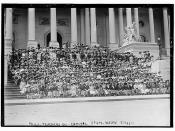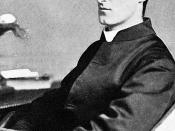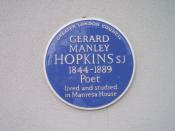Rationale
Students will be able to explain the terms figurative language, neologism, simile, and metaphor. After understanding the terms in isolation, students will be encouraged to locate these literary concepts within the context of the poem "Spring and Fall: To a Young Child," by Gerard Manley Hopkins. The instructor will then gently guide students through the poem using Socratic questioning so that they may imbue the poem with inter-subjective meanings and debate how the aforementioned literary devices contribute to the meaning and affective quality of the poem. Afterwards the students will work in small groups to answer teacher- directed and group-generated questions relating to the poem.
Objectives
Students will be able to work in large and small groups to locate literary concepts within the poem while using independent and shared experiences to discuss the meaning(s) the poem has for them and the implications the meanings may have for the world writ large.
Remember
Given the name of a literary device, students will be able to recite a definition that approximates the definition that is ubiquitously known to be valid by literary theorists and scholars.
Understand
After reciting the correct definition, students will be able to successfully paraphrase the definition and give novel examples of the literary device using experience and creativity.
Apply
Students will be able to locate literary devices within the context of the poem.
Analyze
Students will se reader-response criticism to uncover the meanings they and the author might attribute to the poem while examining the contributions that the literary devices make to the meaning and affective quality of the poem.
Evaluate
The instructor will assess students' ability to correctly apply their knowledge of literary concepts to the poem and their willingness to use personal experience to comment upon the poem's meaning. Although the poem may have...


